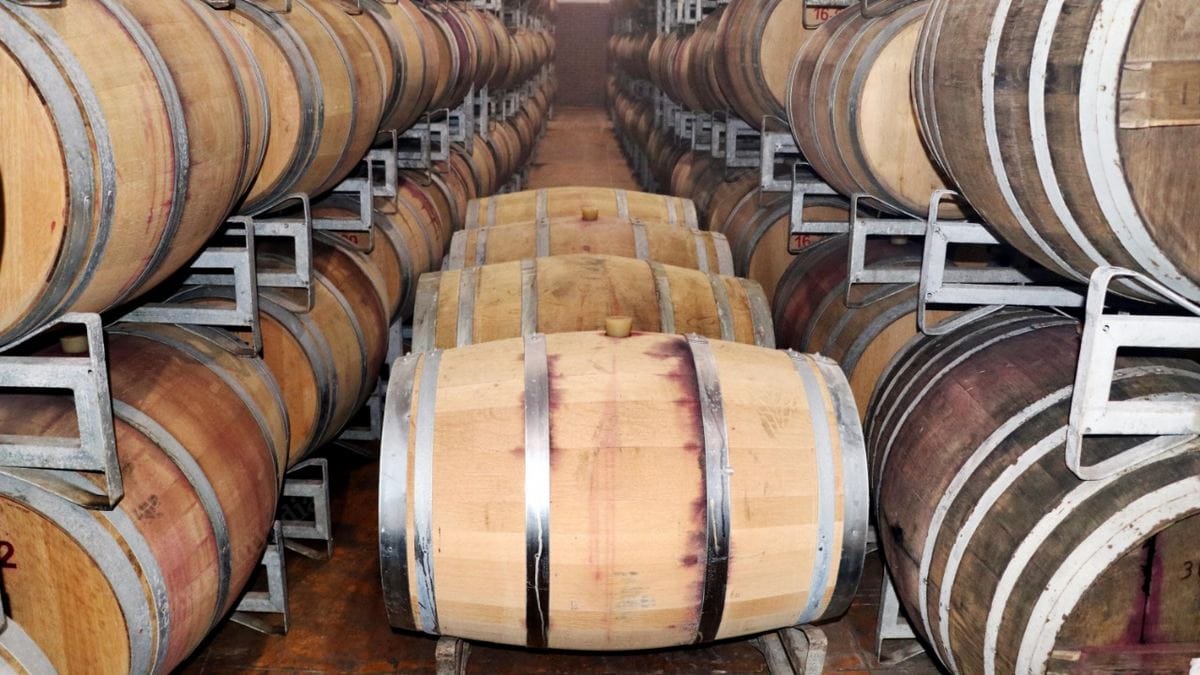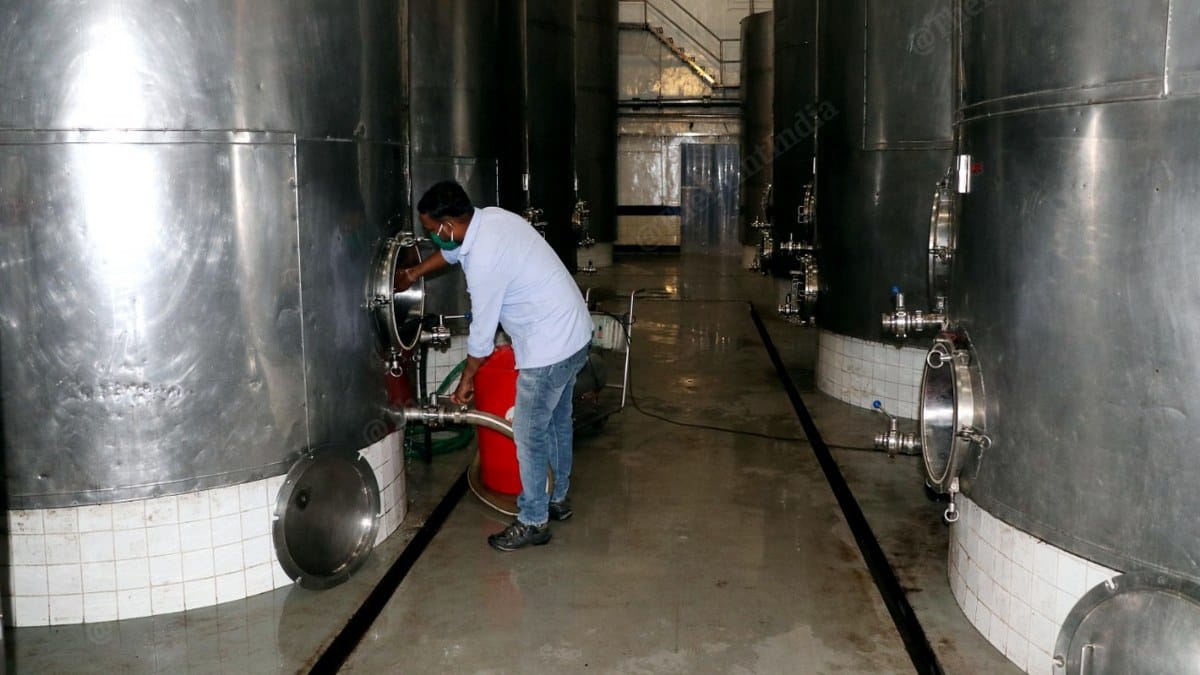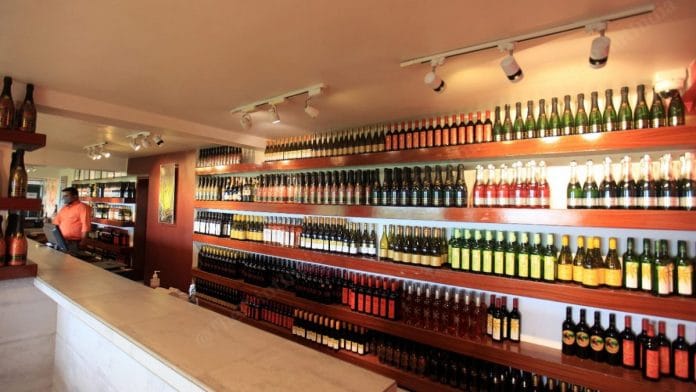Nashik: A bottle of your favourite wine could soon cost more, thanks to the Covid-19 pandemic.
Like most other industries, the Rs 700-crore wine industry also took a hit due to the nationwide lockdown, losing over Rs 150 crore, according to Yatin Patil, president of the All India Wine Producers Association. To make up for these losses, many wine producers across the Nashik region are now considering increasing the retail prices for their products, ThePrint has learnt.
“For the past four months, money is being spent, but there is no money being earned. Hence it has to be adjusted somewhere,” said Patil.
“The sale of wine dropped by 100 per cent during the lockdown — not a single bottle was sold. But our operations — which includes the cellars, machines, temperature control godowns that stock the oak barrels, transportation of grapes, bottling — were all running,” he explained.
However, some wine producers say increasing prices may further hit sales.
“Sales right now are down by 40 per cent. If the price is increased, it may deter people from buying wine. So, it depends on each brand if they are willing to take the risk. Most wineries will go for increasing prices considering the losses they have incurred in these months,” said Ravi Gurnani, director (sales and marketing), York Wines.
“At York, we are not considering increasing the prices as yet. But, if the demand kicks in, we too may go for it,” he said.
The producers’ association has also written to the Maharashtra government to not increase the taxes and duties on wine. “Most wineries will increase prices, so if the government then increases the cess, as in Delhi, the price of the final product will increase a lot,” Patil said.
Also read: They vowed never to return. But no savings, no jobs & debt force migrants back to Mumbai
The Nashik wine industry
Nashik is called the grape capital of India, with more than one lakh farmers engaged in growing the fruit. While some of these farmers have contracts with wineries across the Nashik region and provide them with specially harvested wine grapes, others export table grapes to markets across India and even to Europe.
The wine industry could’ve seen bigger losses, but the timing of the Covid-19 lockdown worked to its advantage — 90 per cent of the grape harvest was completed by 25 March.

“Grapes, both table and wine, are harvested in March and most of our field work was over by the time the lockdown was announced. All the labour required to harvest the grape was available at the time, so we quickly stored all the grapes and put them for crushing,” said Karan Vasani, chief winemaker at Sula Vineyards.
“For the work that was left, we sought special permission from the state government and finished it,” he said.
Also read: There’s a price war to hire doctors & nurses in Mumbai’s Covid-hit satellite cities
Wineries’ support to table grape farmers
When the lockdown was announced, farmers dealing in table grapes were left in a lurch.
Grapes need to be quickly processed or stored properly, else they start oxidising and perish. Those bound for local markets too need to be sold at the earliest. But mandis were shut and the exports to Europe stopped, leaving the farmers worried about their produce.
This is when the wineries across Nashik offered to procure table grapes from these farmers, as they have better infrastructure to store them.

“In order to ensure that these farmers’ produce do not go completely to waste, many wineries decided to procure grapes from them to make wine. We alone procured more than 4,000 tons of open market grapes from these farmers,” Sula’s Vasani said, adding that table grapes are mostly used to make low-end wines.
Patil called it a “win-win situation for both the farmers and the wineries”, as the wine companies procured the table grapes at prices as low as Rs 5 per kg, compared to the usual price of Rs 40 to Rs 100 per kg.
“Although it was procured at a very low price, the farmers at least got something, else the produce would have gone to waste,” Patil said.
However, Arun Morey, director of association of table grape growers, said farmers could not even cover the cost of produce and transport by selling the grapes at such throwaway prices.
“The farmers did not benefit from wineries taking their produce as the grapes went for as low as Rs 5 per kg. That does not even cover the basic cost of produce,” Morey said.
“A majority of table grape farmers export their produce, which was affected as we could not pack our produce. There was no labour available,” he added.
Meanwhile, Gurnani from York Wines said buying the grapes involved a lot of risk for the wineries as they pumped in more money to produce wine at a time when sales were nearly zero.
“Of course, the grapes were procured at very low prices, but at least the farmers got something, which is better than nothing as their entire produce would have gone to waste otherwise,” Gurnani said.
“It is not a win for farmers or the wineries. This is not a situation where anyone can win. It is only about how much support one can lend to each other to minimise losses,” he said.
Also read: TV serials, shows will be back on 13 July after 100-day break, but with a Covid plot twist
The challenges
Wine suffered a bigger hit in the lockdown than other kinds of liquor because it is mostly consumed in urban centres like metros, which have remained shut for longer due to Covid-19.
“Unlike other liquor like whiskey or white spirits, 45 per cent of wine is still consumed in urban, metro cities, and that too mostly in restaurants. Unfortunately, most of the hotspots too are in these big cities, which further hindered the sales,” Vasani said.
“Although the liquor shops are now open, most of our sales are in restaurants, which are still shut. Unless those open, our sales will be low. We made zero sales in April and May,” he said.

The wineries are now hoping that business will pick up in October, November and December.
“This is the time when the consumption of wine peaks, so we hope to make up some of the lost revenue,” Vasani said.
Patil was thankful that the wine producers association’s request to the government to allow them to finish their operations in March was granted.
“If we had suspended the operations then, we would have delayed the production of wine by almost two years,” he said. “We requested the state government to let us finish the crushing of grapes with minimal staff so that it can be stored well and kept for fermentation.
“Although wine-making is not a very labour-intensive task, after the harvest, we need people for crushing, sieving, mixing and bottling,” he said.
The industry did not suffer much labour shortage at that time as most workers are locally based. But now, less than half the workers are allowed to go to work owing to social distancing norms.
“Today, we are operating with less than half our strength. Two people are doing the job of four inside the cellars,” Patil added.
Also read: Spitting, no masks, vegetables dragged through urinal — inside a Navi Mumbai Covid hotspot






